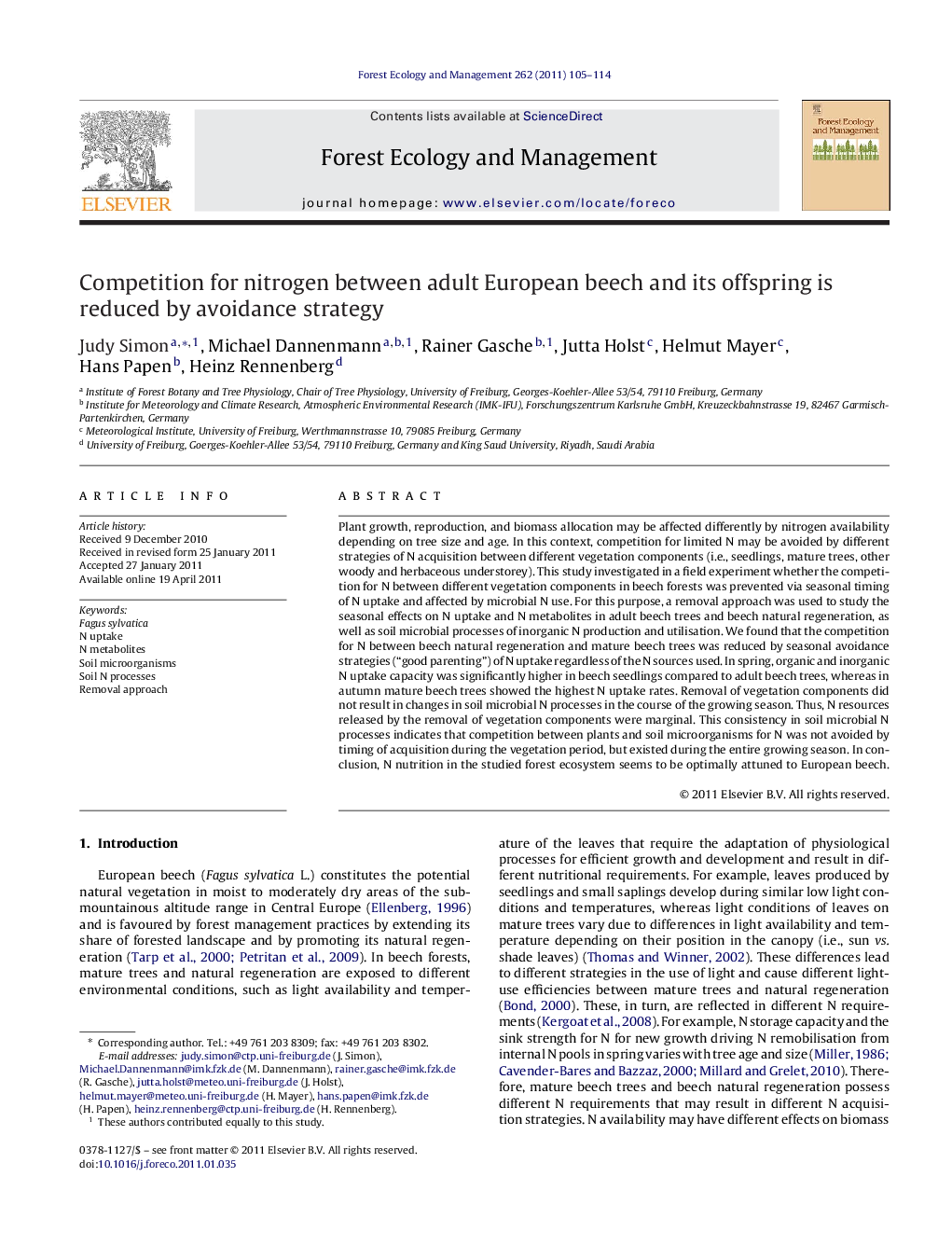| Article ID | Journal | Published Year | Pages | File Type |
|---|---|---|---|---|
| 87949 | Forest Ecology and Management | 2011 | 10 Pages |
Plant growth, reproduction, and biomass allocation may be affected differently by nitrogen availability depending on tree size and age. In this context, competition for limited N may be avoided by different strategies of N acquisition between different vegetation components (i.e., seedlings, mature trees, other woody and herbaceous understorey). This study investigated in a field experiment whether the competition for N between different vegetation components in beech forests was prevented via seasonal timing of N uptake and affected by microbial N use. For this purpose, a removal approach was used to study the seasonal effects on N uptake and N metabolites in adult beech trees and beech natural regeneration, as well as soil microbial processes of inorganic N production and utilisation. We found that the competition for N between beech natural regeneration and mature beech trees was reduced by seasonal avoidance strategies (“good parenting”) of N uptake regardless of the N sources used. In spring, organic and inorganic N uptake capacity was significantly higher in beech seedlings compared to adult beech trees, whereas in autumn mature beech trees showed the highest N uptake rates. Removal of vegetation components did not result in changes in soil microbial N processes in the course of the growing season. Thus, N resources released by the removal of vegetation components were marginal. This consistency in soil microbial N processes indicates that competition between plants and soil microorganisms for N was not avoided by timing of acquisition during the vegetation period, but existed during the entire growing season. In conclusion, N nutrition in the studied forest ecosystem seems to be optimally attuned to European beech.
► Competition for N between young and adult beech is reduced by seasonal timing. ► Beech seedlings favour N uptake in spring, adult beech trees in autumn. ► Removal of vegetation components does not play a role in this competition. ► Competition between plants and soil microorganisms is, therefore, not avoided.
